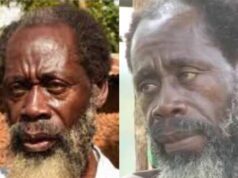Sudan’s military leaders have announced an agreement with the opposition alliance for a three-year transition period to a civilian administration.
The Transitional Military Council (TMC) said the alliance would have two-thirds of the seats on a legislative council.
However, the two sides are yet to agree on a sovereign council – the top tier of power, where both want a majority.
Sudan has been ruled by the military council since last month’s toppling of President Omar al-Bashi
Protests that led to his downfall have continued, with a huge sit-in outside the military he
Sudan’s military leaders have announced an agreement with the opposition alliance for a three-year transition period to a civilian administration.
The Transitional Military Council (TMC) said the alliance would have two-thirds of the seats on a legislative council.
However, the two sides are yet to agree on a sovereign council – the top tier of power, where both want a majority.
Sudan has been ruled by the military council since last month’s toppling of President Omar al-Bashir.
Protests that led to his downfall have continued, with a huge sit-in outside the military headquarters to demand full civilian government.
Hours before the latest deal was announced, at least five protesters and a member of the security forces died in clashes in the capital, Khartoum.
There were reports of more gunshots on Wednesday in the area where demonstrations have been taking place. Activists have said that one person was killed and three were injured.
What has been agreed?
At a joint news conference on Tuesday night, Lt Gen Yasser al-Atta said a final agreement on power sharing would be signed with the opposition alliance – the Declaration of Freedom and Change Forces (DFCF) – within 24 hours. That would include the forming of a sovereign council which will rule the country until elections.
“We vow to our people that the agreement will be completed fully within 24 hours in a way that meets the people’s aspirations,” he said.
Gen Atta said the DFCF would have two-thirds of the seats on a 300-member transitional legislative council, while the rest would be taken by parties not members of the alliance.
Earlier, protest movement spokesman Taha Osman said the sides had agreed on the structure of future authorities – a sovereign council, a cabinet and a legislative body.
DFCF member Satea al-Hajj expressed optimism that the final details on power-sharing would be agreed, adding: “The viewpoints are close and, God willing, we will reach an agreement soon.”
The military had originally wanted a two-year transition period while protest leaders had sought four years to give them more time to prepare.
However, Sadiq Yousuf, a member of the DFCF negotiating team, told the BBC Newsday programme that the composition of the 11-member supreme council was still being discussed.
“The issue has been on the number of members of the supreme council. We want eight civilians, three from the military, but they want seven military and four members.”
adquarters to demand full civilian government.
Hours before the latest deal was announced, at least five protesters and a member of the security forces died in clashes in the capital, Khartoum.
There were reports of more gunshots on Wednesday in the area where demonstrations have been taking place. Activists have said that one person was killed and three were injured.
What has been agreed?
At a joint news conference on Tuesday night, Lt Gen Yasser al-Atta said a final agreement on power sharing would be signed with the opposition alliance – the Declaration of Freedom and Change Forces (DFCF) – within 24 hours. That would include the forming of a sovereign council which will rule the country until elections.
“We vow to our people that the agreement will be completed fully within 24 hours in a way that meets the people’s aspirations,” he said.
Gen Atta said the DFCF would have two-thirds of the seats on a 300-member transitional legislative council, while the rest would be taken by parties not members of the alliance.
Earlier, protest movement spokesman Taha Osman said the sides had agreed on the structure of future authorities – a sovereign council, a cabinet and a legislative body.
DFCF member Satea al-Hajj expressed optimism that the final details on power-sharing would be agreed, adding: “The viewpoints are close and, God willing, we will reach an agreement soon.”
The military had originally wanted a two-year transition period while protest leaders had sought four years to give them more time to prepare.
However, Sadiq Yousuf, a member of the DFCF negotiating team, told the BBC Newsday programme that the composition of the 11-member supreme council was still being discussed.
“The issue has been on the number of members of the supreme council. We want eight civilians, three from the military, but they want seven military and four members.”























